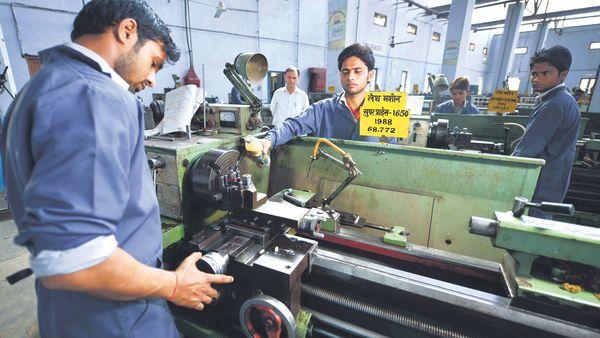New Industrial Relations Law: A Farewell to Job Security

Image for representational use only.Image Courtesy : Livemint
Silently, indeed clandestinely, a major change has been brought about in the relations between employers and employees. This will affect not just crores of employees of all types – private or public sector, in industries or in services – but also future generations. Jobs are no longer going to be the same again, ever.
On November 28, the Narendra Modi government introduced a new draft Industrial Relations Code, 2019, (IRC) in the Lok Sabha. An earlier version of the draft Code was made public in 2017 and created a storm of protest for its anti-labour provisions. The new draft was never made public. It came as a surprise to not just Parliament members but to trade unions and workers/employees across the country. That’s the clandestine part.
The IRC replaces three key existing labour laws -- Trade Unions Act, 1926; Industrial Employment (Standing Orders) Act, 1946; and Industrial Disputes Act, 1947. The first of these dealt with how trade unions are to be formed, while the second and third deal with relations between employers and employees.
After being introduced, it obviously came under public scrutiny. And its provisions have caused a fresh round of outrage. Trade unions have again roundly condemned it. All the central trade unions have already called for a massive two-day nation-wide strike on January 8-9, 2020 to protest against the other labour laws that have been either passed or are in the pipeline. The new Industrial Relations Code, too, will face similar protest.
One part of the IRC deals with new and more restrictive provisions for forming trade unions. This is meant to prevent workers getting empowered through forming a collective body to fight for their rights. An earlier Newsclick report gave details of this part. Let us look at another key provision.
Bye-Bye Job Security
The IRC provision that completely changes the landscape of employer-employee relationship is contained in a small definition given in Section 2 clause (l), which says:
(l) "fixed term employment" means the engagement of a worker on the basis of a written contract of employment for a fixed period:
Provided that—
(a) his hours of work, wages, allowances and other benefits shall not be less than that of a permanent workman doing the same work or work of similar nature; and
(b) he shall be eligible for all statutory benefits available to a permanent workman proportionately according to the period of service rendered by him even if his period of employment does not extend to the qualifying period of employment required in the statute;
What does this mean? It means that the employer can engage workers/employees for a fixed period of time, say, one year or two years, or whatever. Such workers will have all the same conditions of service, wages etc. and all the same statutory benefits as a ‘permanent workman’. The only difference would be that a ‘fixed term’ employee will automatically cease to be an employee when his or her term finishes.
A Pliable Workforce
What this means is that the fixed term employee will be at the mercy of the employer. He/she will know that the job is only for, say, one year. In that one year, if any problem arises, if any benefit is denied, if any harassment or humiliation takes place, he/she will not dare to utter a word. Otherwise, the job will not be renewed.
Also, all terms and conditions will have to be accepted by the worker. If the employer dislikes trade unions, then the hapless fixed term employee will have to steer clear on unions.
And if the employer declares that his/her job performance is not satisfactory, that productivity is low, that the josh is not suitably high, the fixed term employee will have to pull up socks and produce more.
And, ultimately, despite all the best efforts of employees, if the employer finds himself in financial trouble due to stiff competition or any other reason, he will simply allow the term of employment to end. So, bye-bye employee, look for another job.
What this means is that a fixed term employee will never be able to settle down, plan a future, invest in anything. Because, who knows when the job will go!
Through this one fell stroke of the pen, so to speak, the entire lives of crores of workers, current and future, have been unimaginably changed – for the worse.
Shifting the Power
It may be argued – and many do argue – that the employer cannot be responsible for all employees. He has to run a business not a charitable outfit!
But enterprises were running before this change was invented. It was not as if employees were sitting idle in factories and other establishments. In fact, if you look at the data from the Annual Survey of Industries, it shows that per worker productivity has been steadily growing over the years. In most industries, workers were working overtime indicating that there was a lot of work to be done. Factory output also has been growing constantly, except in recent months when the slowdown has ruined many industries.
So, this change is not about running industries better. It is more about keeping workers on a tight leash, hiring and firing them according to management needs and forcing them to be more pliable and meek – in short, turning them into modern slaves
Get the latest reports & analysis with people's perspective on Protests, movements & deep analytical videos, discussions of the current affairs in your Telegram app. Subscribe to NewsClick's Telegram channel & get Real-Time updates on stories, as they get published on our website.























